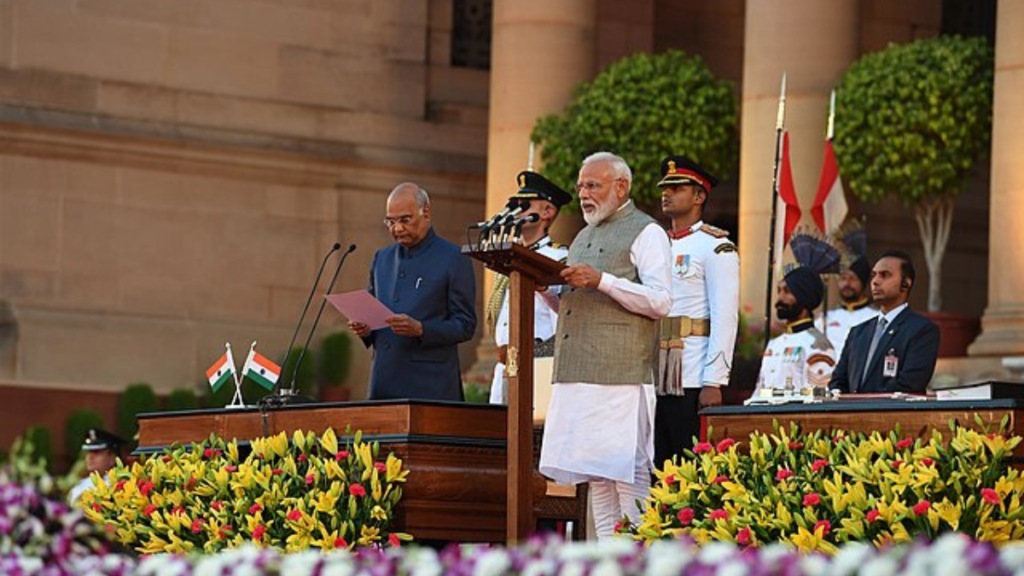The World Climate Action Summit in Dubai is poised to become a pivotal moment in the global fight against climate change, drawing leaders from across the world to address pressing environmental challenges.
At the heart of this crucial gathering stands Indian Prime Minister Narendra Modi’s upcoming visit, underscoring India’s unwavering commitment to combatting climate issues. Scheduled from November 30 to December 1, PM Modi’s participation in COP28 reaffirms India’s pivotal role in shaping a sustainable future.
With a focus on fostering collective action and building upon India’s ambitious climate targets announced during COP26 in Glasgow, this summit signifies a significant opportunity to steer global efforts toward environmental stewardship.
This visit not only amplifies India’s dedication to climate action but also hints at a strategic endeavor to forge crucial partnerships, further enhancing India’s position on the global economic stage.
PM Modi’s attendance at the World Climate Action Summit in Dubai underscores India’s commitment to addressing climate change. During his visit from November 30 to December 1, he will partake in the High-Level Segment of COP28, engaging with leaders and advancing collective action on climate-related challenges.
This summit, under the UAE’s presidency, presents a crucial opportunity to propel global momentum toward battling climate change. India, through its G20 Presidency, has already championed climate initiatives, such as ambitious renewable energy goals and a commitment to reduce coal dependency.
However, proposed measures seeking to halt private financing for coal-based power plants might cause division within the group, particularly concerning emerging nations like India, balancing rapid economic growth with a significant reliance on coal-driven energy production. Despite progress in expanding non-fossil fuel capacities, coal remains a dominant source, powering around 73% of India’s electricity consumption.
PM Modi’s visit not only reaffirms India’s climate focus but also seeks to forge strategic economic partnerships, exemplified by the Comprehensive Economic Partnership Agreement signed in 2022 between India and the UAE. This trip is poised to foster new pathways for India to engage and structure similar partnerships within the region and beyond.
COP28 refers to the 28th Conference of Parties to the United Nations Framework Convention on Climate Change (UNFCCC). It’s a significant global gathering where representatives from various countries convene to discuss and negotiate actions to address climate change and its impacts.
During COP meetings, participating nations aim to establish agreements, policies, and frameworks to mitigate climate change, reduce greenhouse gas emissions, adapt to its effects, and mobilize financial and technological support for these efforts. These conferences play a crucial role in shaping international climate policies and commitments to combat the growing challenges posed by global warming and environmental degradation.
India, under Prime Minister Narendra Modi’s leadership, decided to participate in COP28 due to its commitment to addressing climate change and its impacts. The country recognizes the severity of climate issues and the necessity of collective global action to combat them.
India’s participation in COP28 aligns with its efforts to engage with the international community, share its climate-related initiatives and targets, and collaborate on global solutions. It’s an opportunity for India to showcase its efforts in areas like renewable energy adoption, climate adaptation, and setting ambitious targets to reduce emissions, contributing to the global discourse on climate change mitigation and sustainable development.
In conclusion, India’s participation in COP28 underlines a fundamental commitment to addressing climate change on a global scale. Prime Minister Narendra Modi‘s engagement signifies India’s dedication to driving impactful climate action, showcasing its initiatives, and collaborating internationally to mitigate the adverse effects of climate change.
By joining this crucial summit, India seeks to reinforce its stance on sustainable development, renewable energy adoption, and emission reduction, positioning itself as a proactive participant in the worldwide fight against climate change. Through its active involvement, India aims to contribute significantly to the collective efforts aimed at creating a greener, more sustainable future for generations to come.
